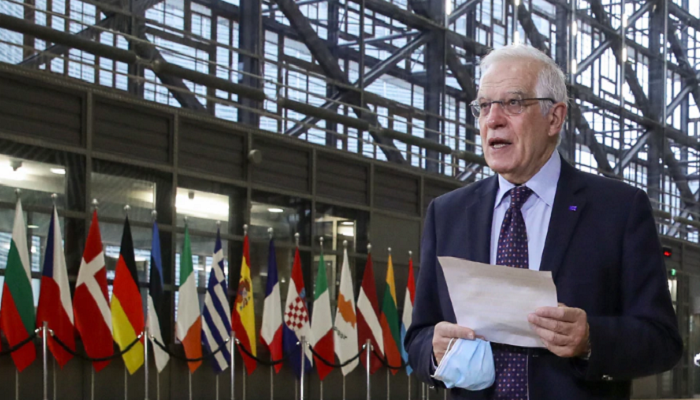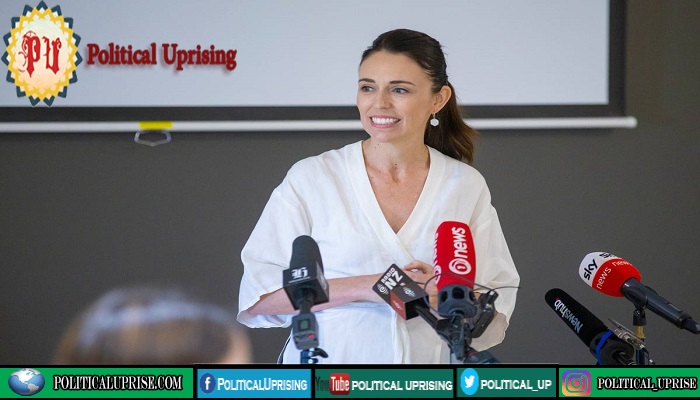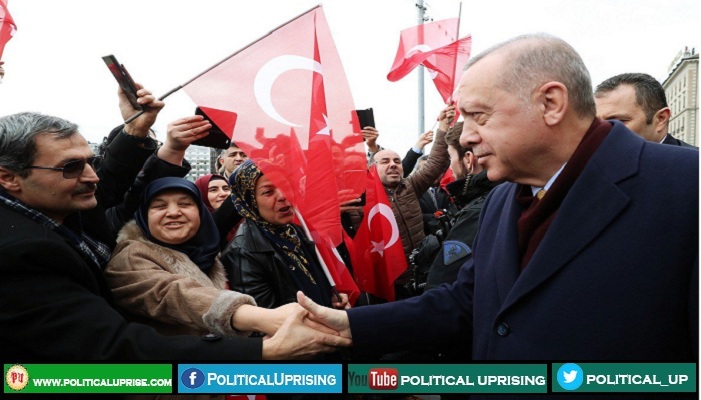EU foreign ministers agreed to impose fresh sanctions on Russia and Myanmar also expected to discuss efforts to save 2015 Iran nuclear deal.
At a meeting of the Foreign Affairs Council, European Union foreign ministers are expected to weigh fresh sanctions on Russia over the imprisonment of Alexey Navalny, consider penalising Myanmar officials over the recent coup, and discuss efforts to save the imperilled 2015 nuclear deal with Iran.
Top diplomats from the 27-nation bloc will meet at the EU’s headquarters in Brussels on Monday for the discussions, which will also include a video-conference with the new US Secretary of State Antony Blinken.
Ahead of the meeting, German Foreign Minister Heiko Maas urged his EU counterparts to approve the preparation of additional sanctions on Russia.
New US admin looks to repair ties with Europe in first NATO meet
Diplomats have said the bloc is set to prepare travel bans and asset freezes on allies of Russian President Vladimir Putin in response to Navalny’s imprisonment, but they appear unlikely to impose restrictions on oligarchs close to Putin, as the Kremlin critic had called for.
Navalny, 44, has been imprisoned in Russia since his arrest on January 17, when he returned to Moscow from Berlin. He had been treated in the German capital following an alleged poisoning attack last year, which he blames on Russian officials. Moscow denies any involvement in the August 2020 incident.
He was jailed on February 2 for almost three years over alleged parole violations on a suspended sentence linked to a 2014 embezzlement case. Navalny insists the case brought forward against him was politically motivated.
UK cabinet says will not give up our independence to EU
His jailing has fuelled nationwide anti-government demonstrations.
“I am in favour of ordering the preparation of additional sanctions, of listings of specific persons,” Maas said upon arriving for the talks on Monday.
A final decision on sanctions is likely to be taken by EU leaders at a summit in Brussels in mid-March.

But Maas also called for EU foreign ministers to “talk about how to keep up a constructive dialogue with Russia, even as relations certainly have reached a low”.
Russia, for its part, has said it is ready to retaliate if the EU takes punitive action.
Monday’s meeting comes two weeks after EU foreign policy chief Josep Borrell made a rare visit to Russia for talks with Minister of Foreign Affairs Sergey Lavrov, a move that drew condemnation from some EU members.
EU leaders to hold emergency summit to save Nuclear deal
During Borrell’s visit, Russia announced the expulsion of diplomats from Sweden, Germany and Poland, accusing them of participating in pro-Navalny protests.
Sweden, Germany and Poland took tit-for-tat retaliatory action.
The EU has previously struck Russia with sanctions over the 2014 annexation of Crimea, the war in Ukraine, and in October, it placed six officials on a blacklist over Navalny’s alleged poisoning.
The Iran nuclear deal and the situation in Myanmar are also expected to be on the agenda.
Signed in Vienna in 2015, the Joint Comprehensive Plan of Action, or JCPOA, saw Iran curtail its nuclear programme in exchange for a gradual easing of international sanctions.
The deal was rocked by former US President Donald Trump’s decision to formally withdraw from the accord in 2018 and reimpose sanctions on Iran. Tehran has gradually scaled back its commitments in response.
Italian Prime Minister employs 30 ministers with no role
US President Joe Biden’s administration says it is ready to talk about returning to the accord, but Tehran insists the US must first rescind its sanctions, while Washington says Tehran must first return to compliance.
EU foreign ministers are also expected to decide whether to sanction individuals in Myanmar in response to the military’s seizing of power.
Germany’s Maas said the bloc was “not prepared to stand by and watch” the situation unfold, as Myanmar’s authorities deploy increasingly heavy-handed tactics in a bid to crush protests against the coup.
Maas’ comments came after Borrell on Saturday condemned the violence against peaceful rallies, during which three demonstrators have been killed.



